

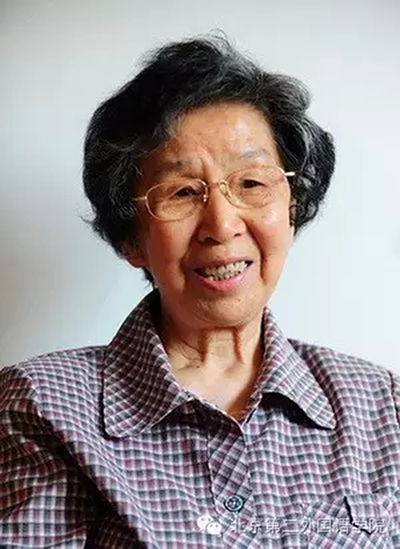
A photo of Su Qi [Photo provided by bisu.edu.cn]
Editor's Note: Su Qi, a veteran translator and educational expert, was born in Southeast China's Taiwan province in 1928. She became a Japanese-language broadcaster at the New Chinese Radio, the predecessor of today's China National Radio and China Radio International of the China Media Group (CMG), shortly after her graduation in 1949 from North China University, which is today’s Renmin University of China. She joined former China Foreign Culture Liaison Administration (today's China Foreign Culture Liaison Committee) in 1955 to take part in cultural exchanges between China and Japan as well as oral and written translations between China and Japan. She came to Beijing International Studies University (BISU) and worked as deputy director of the BISU Research Office of Japanese Language and Literature in 1966. After working in the Research Office of the China Foreign Languages Publishing Administration from 1975 to May 1979, she returned to BISU and took several positions such as director of the BISU Department of Asian and African Studies and vice-president of the university. She was hired by Japan's Kumamoto Gakuen University as a professor between 1994 and 1999. The Translators Association of China (TAC) conferred on her the honor of being a pioneer Chinese translator in 2001.
She became one of the first-generation Japanese radio broadcasters in the PRC
Su became one of the first-generation Japanese broadcasters when the New Chinese Radio opened its radio service of Japanese language in June 1949.
Su was in charge of the Japanese broadcasting of the announcement made by Chairman Mao Zedong (1893-1976) about the founding of the People's Republic of China (PRC) on Oct 1, 1949. Only when there were Japanese broadcasters ready to replace her after two years, did she find opportunities to concentrate on translating news from Chinese to Japanese.
For instance, Su's translated version of Who Is the Most Lovable Person became a hit among Japanese readers in the 1950s. The article was written by Chinese writer Wei Wei (1920-2008) to praise the patriotism and heroic deeds of the Chinese volunteer soldiers during the War to Resist US Aggression and Aid Korea (1950-53).
She was known as one of China's first-generation experts specializing in oral and simultaneous interpretation after 1949
Su was committed to promoting cultural exchanges between China and Japan. She was often invited by the Communist Party of China (CPC) Central Committee to provide visiting Japanese delegations with translation and interpreting services in the 1950s and 1960s.
Meanwhile, Su was also widely known in Japan for her high-level interpreting. For instance, Tsukamoto Keiichi (1947-2018), an interpreting guru in Japan, spoke highly of Su's qualification in his professional publications.
Moreover, both Peking Opera master Mei Lanfang (1894-1961) and well-known Chinese writer and historian Guo Moruo (1892-1978) also gave their high praise to Su for her incomparable interpreting competence when she provided them with such services.
She promoted the translation of Chairman Mao's publications
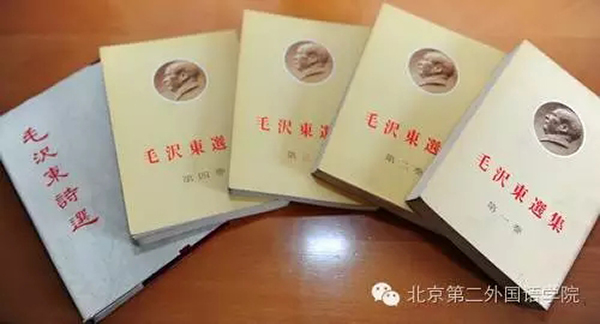
Photo shows the “Selected Works of Mao Zedong.”[Photo provided by bisu.edu.cn]
Su also showed great talent in translation. For instance, she played a leading role in the Japanese translation of the “Selected Works of Mao Zedong” (volume 1, 2, 3 and 4) and the “Selected Poems of Mao Zedong”.
Speaking at a symposium, Wang Mingjie, former secretary-general of the TAC, stressed that no one could rival the high quality of the translated version of the “Selected Works of Mao Zedong” by Su and her teammates.
Su took into account the different characteristics of Chinese and Japanese languages along with cultural and social background of the two countries into her translation of the “Selected Poems of Mao Zedong” and other works in the last century.
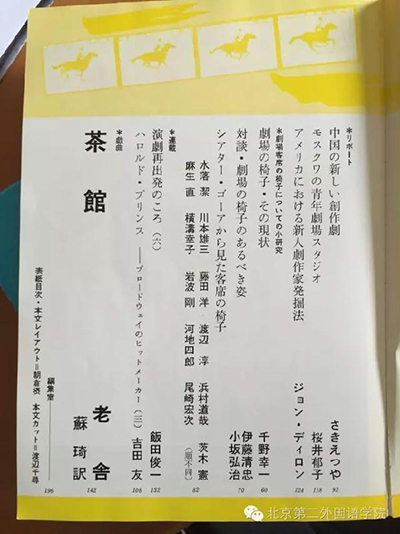
A Japanese introduction to Lao She's “Teahouse” translated by Su Qi [Photo provided by bisu.edu.cn]
Furthermore, at the request of Beijing People's Art Theatre, Su translated “Teahouse” of Lao She (1899-1966), a famous Chinese writer, playwright and linguist, into Japanese before its performers travelled to Japan to give a show of the classical work.
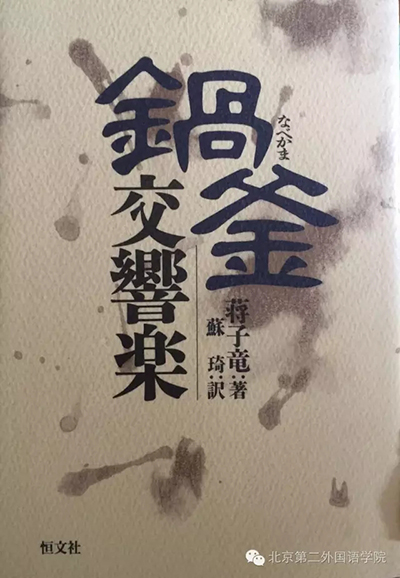
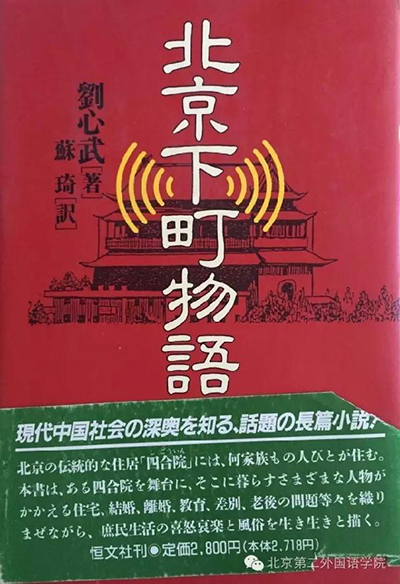
Pictures show the Japanese versions of two Chinese literary works translated by Su Qi. [Photo provided by bisu.edu.cn]
She did the utmost efforts to support the education of Japanese studies at the BISU
During her stay at the BISU, Su shared her decade-long experience and skills relating to Japanese translation and interpreting with all colleagues and students. She wrote them into Japanese textbooks, and devoted herself to training more teachers.
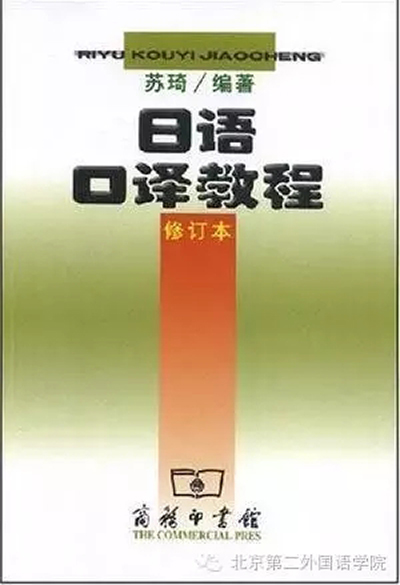
Photo shows the “Coursebook of Interpreting between Chinese and Japanese” written by Su Qi [Photo provided by bisu.edu.cn]
The “Coursebook of Interpreting between Chinese and Japanese”, written by Su, won the second prize in the First China's National University Textbook Contest in 1988. The textbook stresses the cultivation of students' comprehensive qualifications and skills in listening, speaking and interpreting. It has been widely used by local universities and republished 14 times.
With her utmost efforts, the BISU has built closer partnerships with many Japanese universities, which include Kyoto University of Foreign Studies, organized dozens of teachers to continue their further education in Japan and recruited a large number of Japanese students.
During the past decades, Su assumed many positions in different professional organizations such as China Association of Foreign Language Education, the Chinese Society of Japanese Studies and Research, the TAC, the National Education Commission, and Beijing Municipal People's Congress.
In addition, she started to enjoy special government allowance in 1992.

Links
